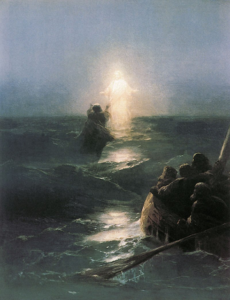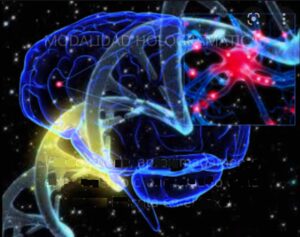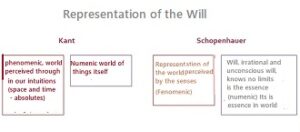
Arquivo para a ‘Linguagens’ Categoria
Crab Footsteps and War
Umberto Eco’s book: “A Passo de Caraguejo: Hot Wars and  Media Populism” (first Portuguese edition of 2012) is from more than a decade ago, but very current, Eco died on February 19, 2016, but if he were alive he would have had a lot to say. because his vision is prophetic.
Media Populism” (first Portuguese edition of 2012) is from more than a decade ago, but very current, Eco died on February 19, 2016, but if he were alive he would have had a lot to say. because his vision is prophetic.
He spoke of the global regression, this is the step of the crab, the resurgence of creationism, the iPod radio (now in disuse), he saw the rebirth of nations not as an affirmative period of cultural identities, but “after the fall of the Berlin Wall, the political geography of Europe and Asia changed radically, making it clear that we were moving backwards. Atlas editors saw forces … to draw inspiration from the old pre-1914 models, like their Serbia, their Montenegro, their Baltics States and so on” (Eco, 2022).
He also saw the rebirth of creationism and so many other absurd worldviews in a process of going backwards like “the steps of the crab”, and when we least expect the war and the new models of expansionism and colonization, and he already warned of media populism, today more evident.
However, in a deeper vision, Max Weber already pointed at the beginning of the last century “the disenchantment of the world”, forced to an excessively rational vision, where he saw the social model: “not what weighs on individuals, but what is transmitted between them”. ”, so what seems outside the objective world, the world of ideas is the one that is transmitted among men.
Pierre Bourdieu returns to “disenchantment” (Bourdieu, 1979) to analyze the assumptions of the Enlightenment and of Kant as a starting point for these ideas, the idea that is in scientific knowledge, consolidated by the French Revolution and its models of state that combined with the technique, would provide a drastic change in human lifestyle, bringing lasting peace.
However, in addition to the ignored colonial wars, two world wars were also triggered, and the bad agreements at the end of each one of them led to others, which delineates now is a repetition of errors, where the reason of each state wants to prevail over the other. , and soulless (and disenchanted) rationalism shows us a world of horror, hatred and intolerance.
Bourdieu warned that the mechanism of direct democracy should not become an element of symbolic oppression, and that most of the words we have for the social are between euphemism and insult, it is like wanting to perpetuate the current state of segregation and oppression.
Bourdieu, P. (1979). O desencantamento do mundo: as estruturas econômicas e estruturas temporais. Trad. Silvia Mazza, Brazil, São Paulo: Editora perspectiva.
Eco, U. (2022) O passo do caranguejo: guerras quentes e populismo midiático. Trad. Sérgio Mauro. Brazil, São Paulo: Record.
Weber, M. (2004) A ética protestante e o “espírito” do capitalismo. Trad. José Marcos M. de Macedo. Brazil, São Paulo: Companhia das Letras.
The pains, the soul and the Being
In one of the most striking passages, at least for those who imagine a world beyond the corporeal, Byung Chul Han introduces narrative as part of the cure: “Senseless pain is possible only in a bare life emptied of meaning that no longer narrates” (Han , 2021, p. 46).
a world beyond the corporeal, Byung Chul Han introduces narrative as part of the cure: “Senseless pain is possible only in a bare life emptied of meaning that no longer narrates” (Han , 2021, p. 46).
He claims and even includes [Walter] Benjamin in “Images of Thought” that speaks of unusual hands that convey the impression that it would be like “telling a story” (idem).
He also cites mothers who, with the “healing force”, sit next to the child and tell him a story, and after explaining the narrative flow with a dam for pain, he concludes: “it is the pain that first puts in [their] path”. (HAN, 20221, p. 47).
We live today in a post-narrative time, says the author, it is not the narrative but the counting that determines life, “the narrative is the capacity of the spirit to overcome the contingency of the body” (Han, 2021, p. 48), a body without a spirit is a body that ignores its own soul.
In her, “the disciplined body that has to repel many pains that come from outside, is poor in sensitivity” (page 49), a totally different intentionality characterizes it, it is not concerned with itself, but with something that comes from outside, and it is this “algophobia” that dominates us.
“This narcissistic, hypochondriacal introspection is certainly co-responsible for our hypersensitivity (to pain), he calls it the “pea-princess-syndrome” recalling an Andersen tale where the presence of a pea on the mattress of the future princess it causes so much pain that she can’t sleep at night, and it’s this kind of illness that happens to many people.
This kind of paradox of postmodernity is to feel more and more pain, with less and less, to the point that pain is not understandable, has no place in life and seems not to be part of existence and this is a form of positivity of Being. , where there is no negativity, and makes Being incomprehensible, or less meaningless.
As the author says, “if the painful pea disappears, then people begin to suffer from soft mattresses” and concludes: “It is precisely the very and persistent absence of meaning in life that hurts” (HAN, 2021, p. 51). ).
What to think, then, of the atrocious pains of war, of innocent victims, of growing political and ideological hatred, everything seems to collapse in a meaningless universe, when pain understood would return to the balance of Being, and the fullness of our existence, distant today, but possible in the near future..
.
HAN, Byung-Chul. (2021) A sociedade paliativa: a dor hoje (The palliative society: pain today). trans. Lucas Machado. Brazil, Petrópolis: Vozes.
The palliative society or the absence of pain
Palliative society explains Byung Chul Han has nothing to do with palliative medicine, as the Korean-German philosopher explains: “Thus, every critique of society has to carry out a hermeneutic of pain. If pain is left solely to medicine, we miss its character as a sign” (Han, 2021).
It reminds us of a saying by Ernest Jünger: “Tell your relationship with pain, and I will tell you who you are!”, so a critical society is not possible without a hermeneutics of pain, the relationship with each suffering not only that produced by history, but that which is in the particularity of each Other.
“Survival society completely misses the point of the good life. Enjoyment is also sacrificed to high health for an end in itself” (Han, 2021, p. 34).
He recalls and quotes Agamben in his vision of homo sacer and via naked: “Without resistance, we subject ourselves to the state of exception that reduces life to bare life” (Han, 2021, idem).
In the palliative society “The art of suffering pain is entirely lost to us… Pain is now a meaningless evil that must be fought with painkillers. As a mere bodily affliction, it falls entirely outside the symbolic order” (Han, 2021, p. 41), emphasis added by the author.
So today, pain is removed from any possibility of expression, it is condemned to remain silent, and “the palliative society does not allow to enliven, to verbalize pain into a passion” (p. 14), emphasis added by the author.
Vargas, Cecília (2018) Systems of Pain/Networks of Resilience project in one gallery. Curated by Cecilia Vargas, Dickson Center at Waubonsee Community College, June 7-July 10th(foto).
HAN, Byung-Chul. (2021) The palliative society: pain today. trans. Lucas Machado. Brazil, Petrópolis: Vozes.
Slap in the Oscar
I had decided not to comment on the best Oscars this year, first because I don’t consider “Attack of the Dogs” as good a movie, as, for example, Dune and Don’t Look Up, not only for the plots, but mainly for the whole work, Dune ended up taking several well-deserved awards, but none of the major ones.
because I don’t consider “Attack of the Dogs” as good a movie, as, for example, Dune and Don’t Look Up, not only for the plots, but mainly for the whole work, Dune ended up taking several well-deserved awards, but none of the major ones.
Will Smith’s slap on Chris Rock stole the show, but director Jane Campion’s best-director comment, in another event about Serene and Venus Williams: “you are wonderful, however, you don’t have to compete with men like me” , also went down badly and his prize lost some of its shine.
Shortly after the slap from Will Smith he would receive the award for best actor, he is a great actor, but it would be more grandiose if he waited for this moment to say about the role he played as the father of the Williams in defense of the family and would give a much greater blow. hard on Rock for making an unfortunate comment about Will’s wife Jada Pinkett’s hair loss.
A lot of people came out in defense of Rock, the newspapers say that his show now breaks box office records, and Will exposed Jada because they now seek to know about her life and her relationships, and just like her alopecia disease, in my opinion, the moment response to Chris Rock could be the statuette moment, and in this case I won’t comment on the merits, but the role of Denzel Washington in MacBeth’s Tragedy deserves to be highlighted.
Another comment is the best actress award, I went to see excerpts after the nomination (I didn’t see the whole movie) Tammy Faye’s eyes (picture), neither the movie nor the winning actress (Jessica Chastain) impress me, I know the Academy follows some cliches: irony, a certain humor and other tics.
I went to see the popularity, just over 60% of people liked the movie, I’m not out then.
I saw Meryl Streep’s performance in Don’t Look Up, and she at least deserved the nomination, of course she’s already won others, she’s a consecrated actress (Margaret Thatcher’s spectacular role in Iron Lady, for example), but merit is indisputable and not the height of the winner matters.
Will Smith’s slap and the fail an action from the Best Director winner (with Williams sisters) drew attention to a lackluster Oscar to the academy’s taste and the slap its a error only.
Regenerate humanism
In his 100th birthday celebrations, which Edgar Morin did last year, and is in his memoirs “Leçons d’un siêcle de vie” (lessons from a century of life), long before the current war he was talking about resisting domination, cruelty and barbarism, and called for a new humanism, which was always present in his literature.
and is in his memoirs “Leçons d’un siêcle de vie” (lessons from a century of life), long before the current war he was talking about resisting domination, cruelty and barbarism, and called for a new humanism, which was always present in his literature.
Recovering the awareness of human complexity, and including it on a new level that would overcome anthropocentrism, this was humanism taken up in the Renaissance, and above all, create a world where world citizenship was possible with respect for cultural diversities.
He who fought in the resistance to Nazi-Fascism, did not fail to show his regret for the period of Stalinism, he knew that we were at an impasse between these two thoughts that could lead us to barbarism, prophetic in relation to the current escalation of the war.
It is not an isolated development, since in other works of his such as O Praíso Perdio and the Method, his key notions of concepts such as autonomy, uberdade, love, individual and subject were developed, saving values that are inherent to them, as well as maintaining a dignity potentially threatened, I would now say, the civilizing process as a whole.
In Method II he does not hesitate to denounce the illusions of traditional humanism (right or left) and seeks to revitalize its ethical and anthropological sense: “It is not a matter of refusing humanism. It is necessary, as we will see, to hominize humanism, and therefore enrich it, based on the reality of the Homo complex” (Morin, Method II, p. 398).
The election of man as the center of the world, and the rejection of both God (or some superior division to which we submit) and the respect for nature which science thought it dominated, is a fundamental step towards regenerating humanism or we walk in the logic of domination.
Everything happens as if history began at the height of 18th century capitalism or early 20th century communism, the few references to true culture both Greek and Judeo-Christian, directly or indirectly condemned, is the cutting of this humanism root.
It is not enough to say that it is superseded, without any historical reference, for example, to Socrates and Heraclitus, where there is a deepening of the education and interiority of consciousness.
It is not enough to say that it is superseded, without any historical reference, for example, to Socrates and Heraclitus, where there is a deepening of the education and interiority of consciousness.
The question of the emergence of Being is linked to another indissolubly linked to that of freedom, the man annulling his autonomy (they say in favor of a certain anthropocentric “humanism”) is a victim of fatalism, of the absence of horizons that are not the domination of the Other , that culture or order that is different from the other and that must also be respected.
Nicolau de Cusa, Ficino, Pico della Mirandola, explored this perspective, in Ficino, for example: providence (which governs a spiritual order), fate (which directs animated beings) and nature (which allows the Being to remain in the world as a living body to which beings submit), although it needs to be updated in terms of language, it is not anthropocentric.
Morin, E. The Method vol. II, Europe-America, Lisbon, Ed. French: Paris, 1997 (portuguese edition).
From just human to supernatural
All forces that focus on polarization see only the human aspect of  a conflict, such as the current one in Ukraine that could at any moment become global, already with some visible signs with the visit of the US vice president to Poland and the Russian reactions. to sanctions.
a conflict, such as the current one in Ukraine that could at any moment become global, already with some visible signs with the visit of the US vice president to Poland and the Russian reactions. to sanctions.
In the hope of peace and a solution to such a dangerous conflict, fortunately some technicians from Ukraine will be able to adjust the problems at the Chernobyl Plant, but there are countless others in Europe, including the one already occupied by the Russians, the one in Zaporizhzhia, one of the biggest in Europe.
There is a supernatural side, like the values we outlined in the previous post, but there is a deeper one, they are not just prophecies like those of Medjugorje (not yet approved by the Catholic Church) that speak of an apparition of Mary as “queen of peace” It has been 40 years since the first apparition seen by 7 visionaries, there is a lot of contestation and no evident proof of this, only people who believe and who have witnessed extraordinary facts.
The important thing is to believe in forces beyond the human ones that can be mobilized, including the struggle for peace and respect for peoples and nations, all those who defend this position are in some way cooperating with the supernatural aspect of defending peace and human coexistence.
In this case it is extreme, because civilization itself can be at stake in the event of a nuclear war, the limits begin to be exceeded, on the one hand, bombs even in maternity hospitals, and on the other, a Russophobia that wants to abolish even classics of literature such as Dostoevsky, who had a free course canceled in Italy, we cannot confuse radical criticism of dictatorial attitudes with practices that are also authoritarian.
For Christians, the moment of revelation of the supernatural aspect of Jesus is on Mount Tabor, where he chooses three to present his supernatural reality to the apostles: Peter, John and James, the choice in itself is interesting: Peter the apostle called to found His church, John the apostle that Jesus loved and James called a lesser apostle, but he was a great apostle.
A well-known biblical episode Jesus “Walking on water” was portrayed in the painting by Ivan Konstantinovich Aivazovskii (1817-1900) born in Crimea, precisely a region of conflict.
The reading says that when they arrived at Mount Tabor, while he was praying (Lk 9,29-30): “his face changed and his clothes became very white and shiny. Behold, two men were talking with Jesus: they were Moses and Elijah”, of course to those who believe, there Jesus reveals himself as God.
No matter the belief, what matters more is the idea of a humanity capable of living in peace and enabling the civilizing process that moves us away from injustices, scourges and hatred.
Moving forward to true thinking
No thought is complete if it does not have a spirituality, what modernity calls subjectivity but which is separate from objectivity as is typical of dualism, creates two realities and neither is part of the whole.
calls subjectivity but which is separate from objectivity as is typical of dualism, creates two realities and neither is part of the whole.
Contemplating the whole means considering the depth of our Being and understanding that we are part of an immense universe full of mysteries, and that our soul yearns for infinity and that is where a true spirituality walks, which is not separated from the substantiality of life (the which is called objectivity in modernity, which is just the part) and that without it we do not contemplate and live the whole, we live a segmented life.
To replace it with a small part, small vices and pleasures, is to walk in frivolity, in superficiality, no true asceticism does without a spirituality, and there is no spirituality without contemplating the human soul as part of the whole of our Being, thus surpassing anthropotechnics and to arrive at an onto-anthropotechnic that looks at things and also at the soul.
Many exercises, from the physical to the spiritual, are done seeking this asceticism, at this point Sloterdijk is right almost all of them are “despiritualized” but his explanation is incomplete because there is no eschatology in their spheres, this reasoning is done especially in Spheres II, which is the whole towards which we walk, it is possible to go to Him.
Yes, it is possible if we move towards deeper waters, seek the completeness of our substantiality, overcoming anthropocentrism and understanding the Earth and the Universe as our home, our abode, but mainly walking and casting the nets for deeper thoughts and spiritualities, there is at high sea, even if raging, what our soul longs for: the eternal.
The biblical passage Lk 5:4-5 says, right after Jesus taught the crowds and Peter (Simon) complained that they had not caught anything, Jesus answers him: “when he had finished speaking, he said to Simon: “Go into deeper waters, and cast your nets for fishing”, Simon replies that he worked all night and caught nothing, but obeyed and cast the nets.
The result was a great fishery. Here, the substantiality of the food and also the spirituality of advancing “to deeper waters” are worthy.
Different reactions to dominant thinking
In countries that were colonies of Europe, the term decolonization emerged, which differs from decolonization because it penetrates precisely into the dominant thought and epistemology (some authors will call it epistemicide), which is not the simple liberation of domination, but also the resurgence of cultures. subalterns.
emerged, which differs from decolonization because it penetrates precisely into the dominant thought and epistemology (some authors will call it epistemicide), which is not the simple liberation of domination, but also the resurgence of cultures. subalterns.
Thus, authors appeared in Africa (such as Achiles Mbembe), in Latin America (Aníbal Quijano and Rendón Rojas y Morán Reyes), as well as authors of original culture such as indigenous peoples (Davi Kopenawa and Airton Krenak), but a dialogue with European authors is possible. open to this perspective like Peter Sloterdijk (speaks of Europe as the Empire of the Center) and Boaventura Santos (speaks of epistemicide and also some concepts of decolonization), there are many others of course.
Christian culture must also be highlighted in these cultures, seen by many authors as a collaborator of colonialism, one cannot deny the historical perspective and also the doctrine that is the liberation of peoples and a culture of fraternity and solidarity, it is also a minority today in Europe and persecuted in many cases.
Among the Europeans who defend a new humanism, or a humanism in fact, since the Enlightenment and materialist theories failed to contemplate the human soul as a whole, and are therefore a one-legged humanism, among the Europeans I highlight Peter Sloterdijk and Edgar Morin, the first who defends the concept of community as a “protective shield” capable of saving our species, and the second, a planetary humanism, where man is a citizen of the world and diversities are respected.
Both consider the proposals populist, it is good to know that there are left and right, they must lose with the current crisis and global consumerism depends on an atmosphere of “frivolity” or superficiality that humanity will be forced to rethink, we will not go back to that what we consider stable, the original writers themselves, as Davi Krenak highlights in several interviews, what we want to return to was not good, there was no real happiness and well-being in what was considered normal.
As an aspect of the construction of thought, in Sloterdijk I highlight anthropotechnics, for him modernity was a de-verticalization of existence and a de-spiritualization of asceticism, while the knowledge and wisdom proposed in antiquity leave the empirical and the deceptive to go towards the eternal and of the true, as religion does not exist for him, it would be a movement of wisdom and knowledge, and not just an asceticism of exercises, where the immortal soul was exchanged for the body.
In Edgar Morin’s perspective, it is the hologrammatic perspective that can give man a vision of the whole, now fragmented by the specialization and particularity of each branch of science, a paradox of the complex system in which man is a part that must be integrated into the whole, where “not only the part is in the whole, but in which the whole is inscribed in the part”, the pandemic taught us this, but the lesson was still poorly learned, in the middle of the pandemic crisis it was decided that everything is released and there is no protocol for protection of all in each (each part), and there is no co-immunity.
Scientific truth and humility
From the Copernican revolution, with the discovery of Galileo and with the scientific advances it should be clearer, even more now with the discoveries of unknown forces of the universe and with the new telescopic James Webb, it should be more and more clear that the man does not he is the center of the universe, although he is capable of doing a lot of damage if he does not put aside the anthropocentric and enlightened vision that places him as an “all-powerful”.
and with the scientific advances it should be clearer, even more now with the discoveries of unknown forces of the universe and with the new telescopic James Webb, it should be more and more clear that the man does not he is the center of the universe, although he is capable of doing a lot of damage if he does not put aside the anthropocentric and enlightened vision that places him as an “all-powerful”.
Schopenhauer also followed, one of the first to criticize the Kantian “thing-in-itself” and his metaphysical system of putting in its place a “Will” (which is the same thing as when man was placed as the center of the universe and the earth where its center inhabits), opened a new philosophical perspective where nothing exists on purpose, everything and we are all consequences of an endless system, with determinations and goals, and that we are responsible for one fate hurting the other, we are hurting ourselves.
In this way Schopenhauer wanted to represent in a compassionate way that he can represent in himself the pain of another, and this would be a great step towards peace, although the phrase of this philosopher is capital: “Man is properly speaking, an animal that attacks” (Arthur Schopenhauer), which goes back to the “wolf man of man” and justifies an aggressive state.
The well-known foundation of Kantian ethics is the categorical imperative (act in such a way as to be a model for others) that serves to guide the actions of subjects, and this in turn is the principle of a “factum” of reason, which is part of the world. numenic, which manages to influence (not in principle sense) the phenomenal world, in order to guide the actions of the rational subject in a universal and necessary way, Schopenhauer at this point makes an important criticism, although it is not enough for a deep criticism of this ethics.
For him, the Kantian ethical program is meaningless because it has as its ultimate foundation of action a metaphysical aspect that disqualifies actions that come from any other instance than reason, the relationship that exists between reason and metaphysics (see that the Kant’s metaphysics is not part of the world, but it is neither theological nor divine), is that rational subjects (transcendental in relation to objects) share the unknowable, since they are able to think about metaphysical things, but not know them.
Numenic refers to what is known without being part of the senses, it is a criticism of empiricism but does not recognize the phenomenal (which manifests itself as a thing).
This gap where there is no mystery, it is natural that it has distanced itself from divine and theological transcendence, but it is an objectified reason, without subjective aspects, that is, proper to the subject, and Schopenhauer correctly points to the pain of the other who is capable of conceiving. , but this principle of compassion will not have a development, other phenomenological authors deal with the question of the Other, and this is a principle for the critique of reason.
Language and empathy
José Saramago expressed this about the opinion that people have on different subjects: “The problem is not that people have opinions, this is great. The problem is that they have opinions without knowing what they are talking about”, in times of social media it is very common to repeat illustrious strangers because they said an impact phrase, but when it is placed in an appropriate context or if one penetrates the subject in question, one can have a more sensible opinion.
on different subjects: “The problem is not that people have opinions, this is great. The problem is that they have opinions without knowing what they are talking about”, in times of social media it is very common to repeat illustrious strangers because they said an impact phrase, but when it is placed in an appropriate context or if one penetrates the subject in question, one can have a more sensible opinion.
Everything is controversial today and in a way almost everything has become mere opinion, the doxa of the Greeks, in this context the problem of language is extrapolated and empathy is increasingly rare in everyday language, if the problem at the origin of modern society in classical antiquity was sophistry, everything was argued just to please the ruling power, the problem today is to see this disseminated in everyday language, care with language, respect for others and respectful listening must be part of empathic language.
It is not just central politics that has deteriorated, or democracy that has gone into crisis, the choices of savior leaders of the homeland, the little discussion of the de facto problems that affect the population, in full pandemic expansion little is said about effective measures against it. , just to give a serious example, the whole problem seems to be the vaccination of children, which is undoubtedly urgent, but everyone has several cases of family or close infection in the neighborhoods where they live.
Re-educating everyday language, reintroducing respect for any citizen, of any race, color or religion, should be a common effort to improve social empathy.
Even in religious language, previously extremely respectful and loving, a more separatist and isolationist conception seems to evolve where the different is isolated and frowned upon.
It is necessary to find space, time and place where the first truths can be spoken, where the original cultures can manifest and be heard.
In many cultures, religions and theories there is a central node there where the deepest truths are spoken.
The biblical passage in which Jesus reveals who he really is and what he came to should be the central point of analysis of his language and his mission, went to Nazareth, the city where he was raised and could be seen as an ordinary person, an empathic attitude, going the synagogue on the Sabbath day they gave the book of the prophet Isaiah (Is 61) and there he read: “The Spirit of the Lord is upon me, for he has anointed me to preach good news to the poor: he has sent me to proclaim the deliverance of the prisoners and, for the blind, the recovery of sight; to give freedom to the oppressed, he sent me to proclaim a year of favor from the Lord”, closed the book and then surprised everyone by saying: “Today this passage of Scripture that you have just heard has been fulfilled” (Lk 1:14). -21) (In the photo the signature of the prophet Isaiah, National Geographic).

